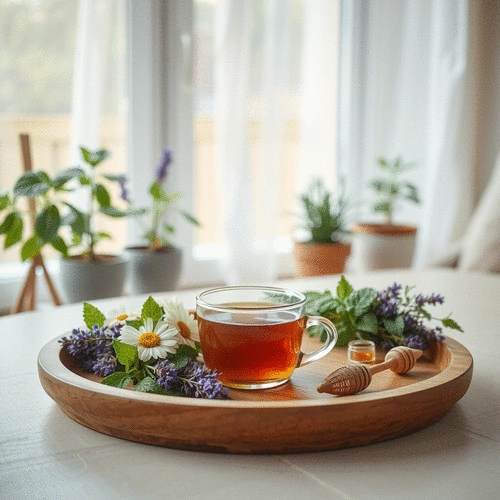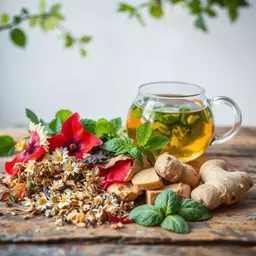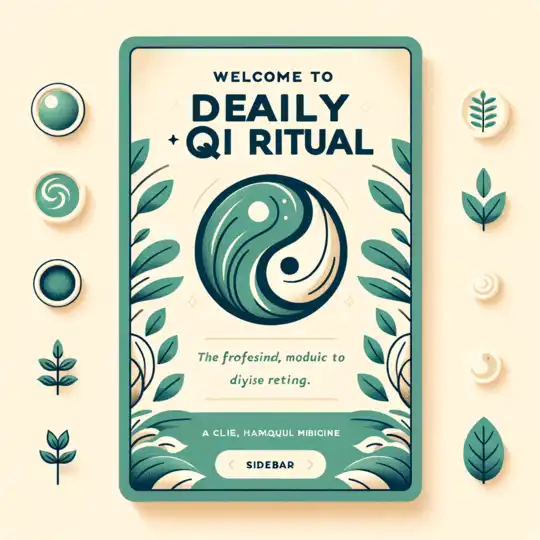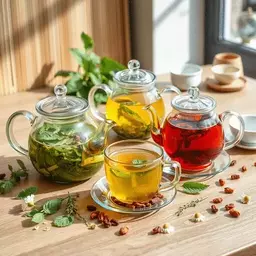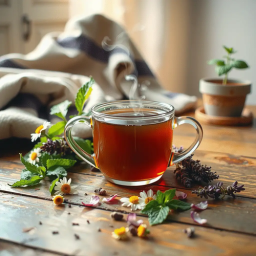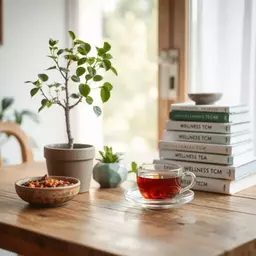What if a simple cup of tea could be the secret to a better night’s sleep? With the right herbal blend, you can turn your nightly routine into a soothing ritual that enhances relaxation and promotes quality rest. Discover the fascinating relationship between herbal teas and sleep, and how they can transform your evenings.
What You Will Learn
- Quality sleep is essential for physical recovery, mental clarity, and emotional balance.
- Herbal teas can promote relaxation and contain sleep-inducing properties that help prepare your body for rest.
- Establishing a tea-drinking routine signals to your body that it’s time to wind down.
- Consulting with a healthcare provider about herbal tea interactions with medications is crucial for safety.
- Choosing the right herbal tea involves considering your specific sleep issues and taste preferences.
- Caffeine-free herbal teas like chamomile, lemon balm, and lavender are excellent choices for enhancing sleep quality.
Benefits of Herbal Teas for Sleep Quality
Integrating herbal teas into your nightly routine can significantly enhance sleep quality. Here are the key benefits:
Relaxation
Many herbal ingredients naturally calm the nervous system, making it easier to unwind before bedtime. For a deeper understanding of how these ingredients contribute to overall well-being, explore the topic of understanding acupuncture and what to expect.
Sleep-Inducing Properties
Certain herbs contain compounds that promote drowsiness and enhance overall sleep quality.
Routine Establishment
Making tea part of your nightly ritual signals your body that it’s time to wind down.
Physical Recovery
Quality sleep allows our body to heal and regenerate, crucial for overall health.
Understanding the Role of Herbal Teas in Promoting Sleep and Relaxation
As I delve into the world of herbal teas, I've come to appreciate their profound role in promoting sleep and relaxation. Many of us struggle to unwind after a hectic day, leading to restless nights and fatigue. It’s essential to understand that quality sleep is not just a luxury; it’s a cornerstone of our overall health and well-being. By embracing herbal teas as a nightly ritual, we can gently guide our minds and bodies toward a more restful state.
Sleep affects everything from our mood to our immune system. Without proper rest, we may find ourselves feeling irritable, unfocused, and even physically unwell. That’s why it's vital to prioritize our sleep. Imagine curling up with a warm cup of herbal tea, allowing its calming properties to wash over you. Could this simple act be the key to unlocking better sleep?
The Importance of Quality Sleep for Overall Health
Quality sleep is vital for maintaining a balanced life. It supports our physical health, mental clarity, and emotional stability. Here are some reasons why sleep should be a priority:
- Physical Recovery: Sleep allows our body to heal and regenerate.
- Mental Clarity: A good night’s sleep enhances cognitive function.
- Emotional Balance: Quality rest helps regulate our mood and stress levels.
When we compromise on sleep, we not only feel tired but may also experience long-term health effects. Think about how you feel after a night of poor sleep. It’s often a struggle to get through the day! Prioritizing sleep can improve our overall quality of life. For more tips on establishing beneficial routines, consider exploring evening routines for better sleep.
Exploring the Connection Between Herbal Teas and Sleep Quality
Herbal teas have long been celebrated for their calming effects, and research continues to support their use in promoting better sleep quality. Specific herbs used in these teas can help soothe our minds and prepare our bodies for rest. Some of the most notable benefits of herbal teas for sleep include:
- Relaxation: Many herbal ingredients naturally calm the nervous system.
- Sleep-Inducing Properties: Certain herbs contain compounds that promote drowsiness.
- Routine Establishment: Making tea part of your nightly ritual signals your body that it’s time to wind down.
As we explore specific herbal ingredients in the following sections, you’ll find that integrating these teas can significantly enhance your sleep experience. Picture yourself settling in for the night, cradling a cup of soothing tea, with the day’s worries melting away!
Quick Summary
Here's a brief recap of the key points discussed so far:
- The Importance of Quality Sleep: Quality sleep is essential for physical recovery, mental clarity, and emotional balance.
- Herbal Teas and Sleep Connection: Herbal teas can provide relaxation and sleep-inducing properties, helping to establish a calming nighttime routine.
- Choosing the Right Herbal Tea: Factors to consider include your specific sleep issues, taste preferences, and the inclusion of sleep-promoting herbs.
Addressing Common Questions About Herbal Teas and Sleep
When it comes to enhancing sleep quality, many of us have questions about the safety and efficacy of *herbal teas*. At Daily Qi Ritual, I often hear concerns about *interactions with medications*. It’s important to address these topics to help you make informed choices as you explore the world of herbal sleep aids.
One common question is whether herbal teas can interact with prescription medications. While many herbal teas are safe to consume, some ingredients may have effects that could amplify or diminish medication efficacy. Therefore, it’s wise to consult with a healthcare provider, especially if you're taking medications for chronic conditions. Understanding the nuances of these interactions is crucial for safe practice, much like the careful consideration given to herbal teas in traditional Chinese medicine.
- Discuss your current medications with your doctor.
- Ask about specific herbal ingredients and their known interactions.
- Consider keeping a *journal* to track how herbal teas affect your sleep and overall well-being.
How Do I Choose the Best Herbal Tea for My Sleep Issues?
Choosing the right herbal tea can feel a bit overwhelming, especially with so many options available. To help you find the best one for your sleep issues, consider the following factors:
- Your Sleep Issues: Identify whether you struggle with falling asleep, staying asleep, or waking up too early.
- Your Taste Preferences: Think about what flavors you enjoy. This will encourage you to stick with your herbal tea routine.
- Specific Ingredients: Look for teas that contain sleep-promoting herbs like chamomile, valerian root, or lavender.
With these criteria in mind, you can experiment with different blends to discover what resonates with your body and enhances your evening relaxation rituals. Remember, it's all about *finding what works best for you!*
What Are Caffeine-Free Herbal Teas That Support Sleep?
For effective sleep support, it’s crucial to choose *caffeine-free herbal teas*. Here are some delightful options that can help you drift into a peaceful slumber:
- Chamomile Tea: Renowned for its calming effects, chamomile can ease anxiety and encourage relaxation.
- Lemon Balm Tea: This soothing herb helps reduce stress and promotes restful sleep.
- Lavender Tea: The aromatic qualities of lavender can create a tranquil atmosphere for sleep.
- Valerian Root Tea: Known for its sedative properties, valerian can be a powerful ally for those seeking better sleep.
Integrating these caffeine-free options into your evening ritual can set a soothing tone as you wind down. Have you tried any of these teas? Their calming benefits can work wonders for your nighttime routine! For those interested in exploring more about mindful practices, check out mindfulness in everyday life.
Recap of Key Points
Here is a quick recap of the important points discussed in the article:
- Importance of Sleep: Quality sleep is essential for physical recovery, mental clarity, and emotional balance.
- Benefits of Herbal Teas: Herbal teas can promote relaxation, contain sleep-inducing properties, and help establish a calming nighttime routine.
- Consult Healthcare Providers: Always discuss herbal tea consumption with your doctor, especially if you're on medications, to avoid potential interactions.
- Choosing the Right Tea: Consider your specific sleep issues, taste preferences, and seek teas with sleep-promoting ingredients like chamomile, valerian root, or lavender.
- Caffeine-Free Options: Opt for caffeine-free herbal teas, such as chamomile, lemon balm, lavender, and valerian root, to support better sleep.
Frequently Asked Questions About Herbal Teas for Sleep
Q: How do herbal teas help with sleep?
A: Herbal teas promote sleep by naturally calming the nervous system, providing sleep-inducing compounds, and establishing a routine that signals to your body it's time to wind down. Ingredients like chamomile and valerian root are known for their relaxation properties.
Q: Are there any side effects or interactions with medications when drinking herbal teas for sleep?
A: While many herbal teas are safe, some ingredients can interact with prescription medications, potentially amplifying or diminishing their effects. It's crucial to consult with a healthcare provider, especially if you are taking medications for chronic conditions, to discuss any potential interactions.
Q: How do I choose the best herbal tea for my specific sleep issues?
A: To choose the best herbal tea, consider your specific sleep issues (e.g., trouble falling asleep, staying asleep), your taste preferences, and look for teas containing known sleep-promoting herbs like chamomile, valerian root, or lavender. Experimentation with different blends can help you find what works best for you.
Q: What are some popular caffeine-free herbal teas recommended for better sleep?
A: Excellent caffeine-free herbal teas for sleep include Chamomile tea (for anxiety and relaxation), Lemon Balm tea (reduces stress), Lavender tea (creates a tranquil atmosphere), and Valerian Root tea (known for its sedative properties). These can be integrated into your evening routine to promote a peaceful slumber.
Q: How long does it take for herbal teas to improve sleep quality?
A: The time it takes for herbal teas to improve sleep quality can vary by individual. Some people may notice benefits immediately, while for others, it might take a few days or weeks of consistent use to establish a routine and experience significant improvements. Consistency is key.

